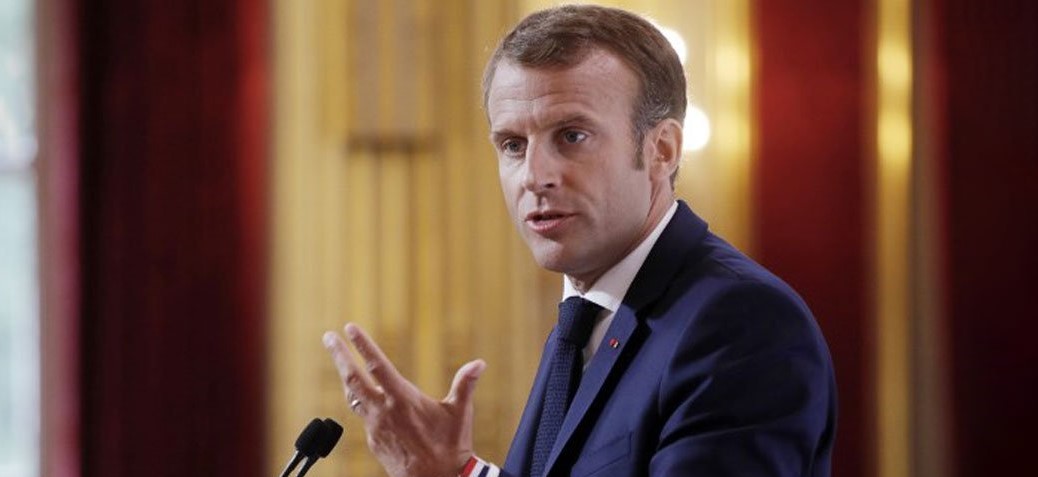Europe to define its security
August 28, 2018 | Expert Insights

French president Emmanuel Macron has cautioned that Europe can no longer depend on the US for its military defence. He called for an urgent new European security policy in the face of rising nationalism and extremism.
Background
The Common Security and Defence Policy (CSDP), is the doctrine that defines the European Union's response to issues related to defence and crisis management.
The implementation of the CSDP involves the deployment of military or civilian missions for peacekeeping, conflict prevention and strengthening international security in accordance with the principles of the United Nations Charter.
The Union's High Representative (HR/VP), currently Federica Mogherini, is responsible for proposing and implementing CSDP decisions.
Analysis
In a speech to French overseas ambassadors on Monday, Macron said he would put forward new proposals to the EU to boost security and that all European nations, including Russia, should be involved in discussions on defence cooperation.
“Europe can no longer rely on the United States for its security,” Macron said at what he called a “crisis moment” for European politics and global multilateralism. “It is up to us to guarantee European security.”
In November, EU countries launched an unprecedented programme of joint military investment aimed at confronting EU security challenges. Twenty-three of the 28-member states signed up to the plan.
During the speech, Macron said cooperation with Russia should occur on the condition that progress is made with Moscow on the fighting in eastern Ukraine. Paris is pushing for full implementation of the 2015 Minsk peace agreement that was sponsored by France and Germany to settle the conflict in Ukraine, which has killed at least 10,000 people since 2014.
Macron called on Europe to be "a trade and economic power" that defends its strategic interests and financial independence with tools that can fend off US extraterritorial sanctions. "Multilateralism is going through a major crisis which collides with all our diplomatic activity, above all because of US policy," he said.
Macron also criticized US President Donald Trump's "aggressive" isolationism. "The partner with whom Europe built the post-World War order appears to be turning its back on this shared history," the French president said. In May 2018, German Chancellor Angela Merkel had forcefully remarked that Europe can no longer count on the United States to protect it, urging the continent to “take destiny into its own hands.”
” It is no longer such that the United States simply protects us, but Europe must take its destiny in its own hands. That's the task of the future," she said during a speech honoring French President Emmanuel Macron, according to Agence France-Presse.
Her sharp comments came days after President Trump pulled the U.S. out of the Iran nuclear deal, angering European allies who are parties to the 2015 pact. Macron said communication with Washington had to be open and constructive, but European countries had to work together to come up with alternatives to hardline isolationist politics. “The question is not about whether I grab Trump by the arm at the next international summit; the question is, what are we going to reinvent?”
He said moments such as the UK’s Brexit vote, the Trump election or the success of Hungary’s Viktor Orbán were linked to a crisis in modern globalization and it was now up to countries to overhaul global governance and make globalization more “human”.
But since Macron vowed last year to overhaul the EU – pushing for deep political reforms, including a separate budget for the eurozone – he has appeared isolated, amid a rise of Eurosceptic and nationalist parties in countries from Italy to Hungary and gains by the far right in Germany. Macron insisted that France had to push on with EU reforms because “we’re paying the price of several decades of a Europe that has become bland, weakened and hasn’t made enough suggestions”.
Assessment
Our assessment is that European nations will be compelled to fill the void left by the withdrawal of the US from international organizations and key regions of the world. We feel Europe will try to rebalance its relationship with Washington. We believe Macron’ s desire to bring Russia into the European defence architecture is a new dimension and it speaks of a possible reset. We strongly believe that Europe will step up its activities in the Middle East, Africa, and Western Balkans as the cost of any conflict, poverty, and displacement will have to be borne by them.








Comments